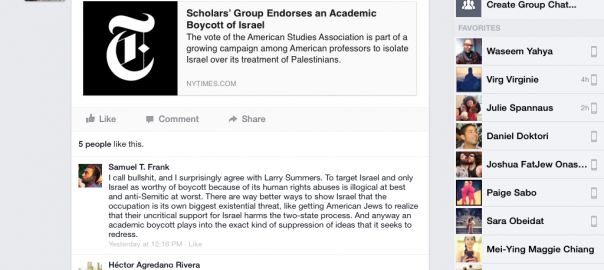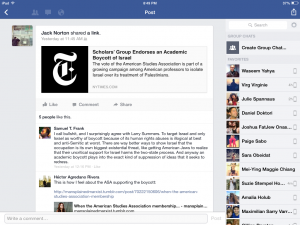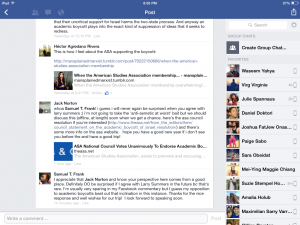Recently the NY times published a piece regarding the academic boycott of Israel.
As a graduate student and New York Jew with family in Israel, including a brother attending medical school there, I clearly have a stake in this debate. There is also some family history involved; my grandparents worked with the ANC, and in part due to their political activities, were eventually forced to leave South Africa for England with their three young children (a journey that my mother recounts beautifully in the prologue to her book).
Certainly in the short term the boycott draws attention to Israel’s treatment of Palestinians, but at what cost to meaningful academic dialogue and research in the long run?
A good friend and fellow CUNY graduate student, Sam, shared his opinion recently in response to a Facebook post:
Many have likened the recent academic boycott of Israel to the academic boycott of apartheid South Africa. I wonder about historical differences in the two contexts. The history of the Jewish state and the jewish people is quite different from the history of the South African apartheid state. How will my family members, such as my brother, grandmother, and great uncle – who has a dual appointment at an Israeli and an American University – relate to this issue?
Interestingly, the above Facebook conversation ended with both parties agreeing to continue to the conversation offline – which also relates to my interests in how people write in explicitly social settings as opposed to semi-public or more intimate settings.
Clearly these two young men are aware of what’s at stake when debating academic issues involving Israel. What are the implications of their choice to end the conversation here, why didn’t they continue online and what does this mean for the way people write and think while using social media?


